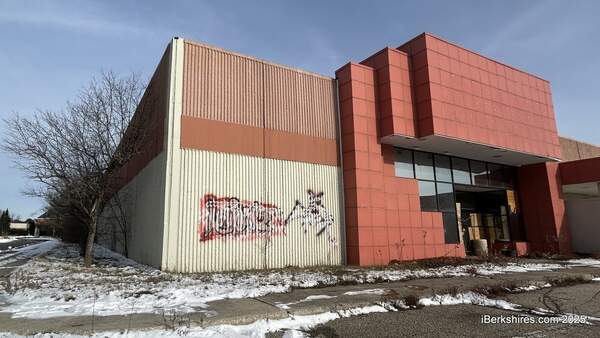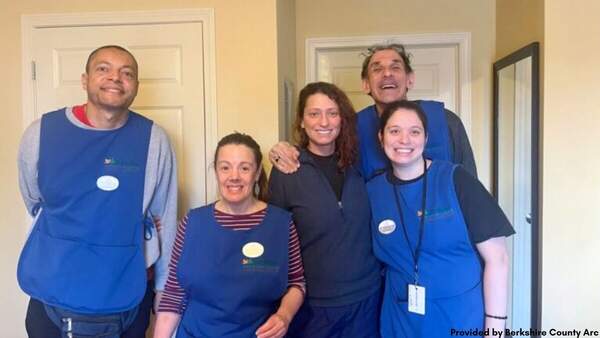Pittsfield Residents Demand Change to Prevent Police Shootings
PITTSFIELD, Mass. — Residents took to the open microphone portion of the City Council meeting to call for change following the shooting death by police of Miguel Estrella and the 2017 death of Daniel Gillis.
Estrella's death in late March has triggered a significant community response and the council has yet to respond to the situation, which was also brought up during public comment.
On the agenda were two petitions requesting that Pittsfield Police officers be equipped with body cameras, one from local attorney Rinaldo Del Gallo and another from resident LeMarr Talley. Though the council did not take up the petitions, they generated a great deal of conversation from the community.
"My brother's death at the hands of police on March 25 has shed some light on the issues that our community is having when it comes to mental health assistance and public safety," Estrella's sister Elina Estrella said.
"Although the Pittsfield Police Department has allegedly had a program in place that sends a mental health call responder along with them when they are to assist the person in a mental health crisis, it was not utilized in my brother's interaction with police officers when they shot him, allegedly the co-responder had already clocked out for the day,"
"Mental health emergencies do not run on a nine to five schedule, in fact, according to a Harvard mental health study, these issues are often worse after 9 p.m."
Estrella asked how the Police Department's newly established "hub" model for dealing with people in crisis has been working and what is the function of the Police Advisory and Review Board that was established after Gillis' death.
"If the police are given funds to adopt programs to help people in crisis and prevent more tragedies from happening like the hub model and like the co-responder program and the purchase of less lethal weapons, how is it that people are still dying?" Estrella asked.
"Where is the accountability when every interaction has the same result? When will there be funding for more reliable resources without the use of police? Residents shouldn't be afraid to contact police for assistance, so what are you as City Council members going to do to assure us that a death sentence will not be an outcome of a 911 call?"
Gillis' girlfriend, Jacquelyn Sykes, recounted the night that she saw him being shot by police in 2017. She spoke about the need for body cameras, stating that if the responding officers had been wearing them that day they would have been held accountable.
Office Christopher Colello shot and killed 36-year-old Daniel Gillis on Taylor Street on Sept. 1, 2017, after a call was made for a domestic incident. According to police, Gillis had initially barricaded himself in the house and was armed with a knife.
"I fully believe Danny was murdered in cold blood and if the police had body cameras, someone would be held accountable, I called the police for help, Danny wanted to die that day, and I regret making that call," she said.
"I disarmed Danny in front of the police, I have no training, when I went out the door with that knife there was an officer who already had his gun drawn at me and if the officer in the front didn't come around and say that don't shoot me, I probably would be dead, too. Thankfully I threw the knife down and went outside, when I told the officers everything that was going on they ended up calling in more officers, there was at least seven or eight officers there that day.
"Danny came out on the back porch, not comprehending what anybody was saying to him because they were screaming at him, not trying to de-escalate the situation what they're supposed to be trained to do. He went back inside and got a knife and came outside, right when he came outside that's when the last officer arrived on the scene and they gunned him down in our side yard where I currently still live."
Sykes claimed that there is a new video that shows two officers shooting Gillis and pointed out that Colello was not held liable. Months after the incident, the district attorney determined that the officer will not be charged with a crime for shooting Gillis.
"That day he died when they shot him, they put me right in the police car, they asked me if he had any diseases and they started CPR on him then they immediately took me to a state police and had me there for two hours questioning me, talking to me, I had no idea what was going on," she added.
"After that. I was trying to get the case, trying to figure out what was going on, the state police start doing the no-trespassing order, they never got his mother going to see his body at the emergency room, we were never allowed to see his body, they cremated him without permission."
Helen Moon, a former city councilor, spoke against police body cameras because she feels they do not actually hold officers accountable and that surveillance footage is racially biased.
She referenced a 2017 randomized controlled trial of more than 2,000 officers in Washington, D.C., which found no statistically significant difference in use of force and police misconduct and a 2016 study that found only about 8 percent of compiled video footage is actually used to prosecute police officers.
She also referred to the 2014 experience of Derrick Price, a state of Florida man who was beaten due to the police account of resisting arrest that police body camera players seemed to confirm. Moon said surveillance from a nearby building, however, showed that Price tried to surrender.
"Data and past experiences tell us that it will do very little to increase police accountability or prevent police violence, what it does do, however, is pose privacy risks. It is increasingly integrated with facial recognition technology that has proven to be racially biased and inaccurate, surveillance technology disproportionately harms to marginalized communities," she said.
"Instead, I am asking you, our elected leaders, to consider investing those hundreds of 1,000s of dollars to the supports that keep our community safe, what would have prevented Miguel Estrella's death in the first place, with an overburdened and underresourced mental health system, Miguel's mental health crisis was a death sentence."
In other business, the council was supposed to take up an $84,000 request from the Board of Health for legal counsel to shut down a Verizon cell tower at 877 South St. but had to continue the matter. President Peter Marchetti explained that this is because he did not put on the agenda that the council needs to go into executive session for it because it is a matter involving litigation.
Tags: Pittsfield Police, shooting,















